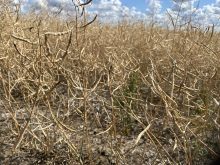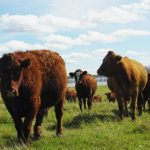Re: Letter to the Editor by Mr. Avery Sahl (WP May 19).
Mr. Avery Sahl was 100 percent correct. Yes, it was prime minister R.B. Bennett who brought in the Canadian Broadcasting System (CBC radio) and the Canadian Wheat Board. At that time, the CWB was a voluntary system and spring and durum wheat, barley, flax, oats and rye could be sold voluntarily to the CWB, as well as to the private grain companies and pools.
However, in 1938 the voluntary system was not working to the satisfaction of the prairie grain farmers. So, the prairie grain growers of the day got organized – held meetings, signed a plebiscite – making it compulsory that all grain be sold through the CWB.
Read Also

Rural emergency room closures continue to be vexing problem
Staffing issues are at the root of disruptions and closures in hospital emergency departments, both in rural and urban Canadian locations.
They also raised money to send a delegation of farmers to Ottawa to deliver and present the plebiscite to the federal government of Canada, making it compulsory that all grain be sold through the CWB.
The prairie grain farmer of the day made one mistake – they did not ask for representation of prairie grain farmers to be elected to the CWB by prairie grain farmers. It took years for that to happen.
The government of the day appointed all the CWB members. Thus, the Canadian prairie grain farmers had no representation or say on the CWB.
How many farmers of today remember when two railway boxcar loads of malting barley did not pay the Crow’s Nest freight rate bill to the railways, or two animal boxcar loads of cattle or pigs did not pay the rate to Winnipeg or Toronto.
Farmers paid a much higher freight rate on input goods because the Crow rate only applied to raw goods from Western Canada that went to eastern Canadian manufacturers….
Now the experts are telling the farmers to sell their land, rent it back and get bigger, rent back the land you sold and rent more land and get bigger equipment and farm more land.
I would suggest just the opposite. Sell your equipment, pay off all your debts and buy a home in a city with a hospital, care homes, doctors, etc., and if you would still like to have your hand in farming, then go and work for a large farmer. Any extra money that you have, buy more land and rent it out.
Doug Chalmers,Victoria, B.C.















